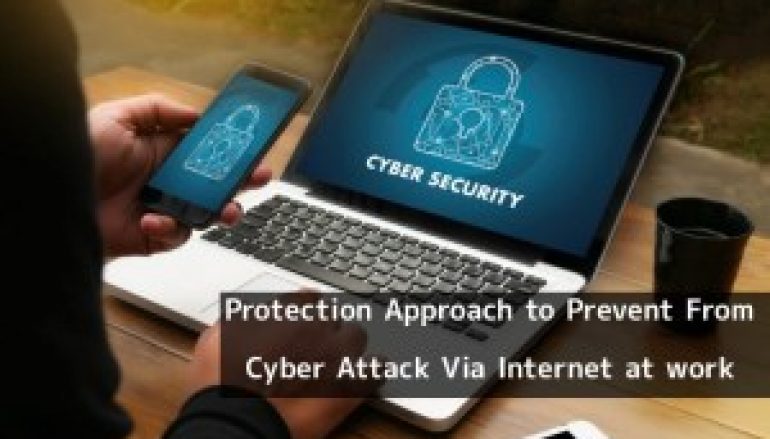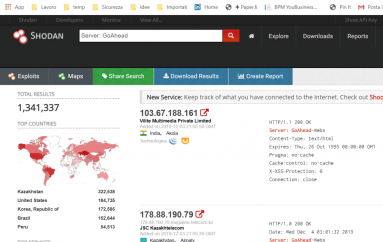
Most Important Protection Approach to Prevent From Cyber Attack Via Internet at Work
As a normal Internet user, you have the sensible hope that your correspondences and transaction are private and secure in Internet security Environment.
Numerous activities in our everyday lives now depend on the Internet, including different types of communication, shopping, financial services, entertainment and numerous others. The development in the utilization of the Internet, but likewise displays certain dangers.
The Internet empowers opportunities for human, social and financial improvement on a worldwide scale.The Internet is a global interconnected network of networks.
Be Aware of Phishing Emails
Scammers can send personal Emails, they may call you by name, utilize your expert title, and even specify a project you’re working with.
Phishing messages by searching for inaccurate or uncommon URLs (hover over URL to see the real URL address), demands individual data or cash, suspicious connections, or a message body that is really a picture.
Unless you’re 100 percent sure that a message is from somebody you know, don’t open attachments or click links. Enter in login credentials only on HTTPS-protected sites.
Use Strong Password and store them Encrypted
Lock devices, company routers, and online accounts with solid passwords or PINs. Solid passwords are long expressions or sentences and blend capital and lowercase letters, numbers, and symbols.
Have a unique password for each account or device containing individual or business information, and change them frequently.
Use a password manager and store passwords encrypted. Try not to unveil passwords or PINs to your colleagues.
Safeguard your computer
Keep all application current with automatic updating. Install legitimate antivirus and anti-spyware programming. Never disable your firewall.
Back up your data regularly, either manually or using an automated backup system.
In case you’re uncertain if a message is authentic – even from a colleague – contact the sender to confirm utilizing an alternate device and another account.
Stop and think before you open attachments or clicking links in strange email, content, or texts (IM), on social networks, or in random pop-up windows.
Defend company data and Financial Assets
Be careful with scams. Never give data like an account number or password in reply to a telephone call, or email or other online requests.
Don’t put confidential information in an email, instant, or text messages; they may not be secure.
For the most sensitive transactions – Automated Clearing House (ACH) payments, payroll, and the like – consider a dedicated computer not used for email or web browsing.
Public WIFI Networks And Flash Drives
Public Wi-Fi is inherently insecure – so be cautious.Use a VPN (virtual private network).
Don’t put any unknown flash (or USB) drive into your computer.On your flash drive, don’t open files that are not familiar.
Common Defences
Choose the most secure option – it could include password protection or encryption – even if you have to pay for it.
Confirm the exact spelling of the wireless network you’re connecting to – beware of clever (slightly misspelled) fakes, such as www.micrsoft.com.
Encrypt all confidential data on smartphones, laptops, flash drives, and other portable devices in case they’re lost or stolen.
Never make financial and other sensitive transactions on any device over public wireless networks.
What to do if there are issues
Scams, obscene material, or aggressive behavior to the service. For example, in Microsoft services or software, look for a Report Abuse link or contact at microsoft.com/reportabuse.
Any misrepresentation of your organization–for example, a phishing scam that pretended to be from your company–to your system administrator and the Anti-Phishing Working Group at www.antiphishing.org/report_phishing.html.
Loss of organization information or other resources
If sensitive company data or accounts have been compromised because of theft or loss of a laptop, smartphone, or another device, or because of a breach of network security or an account:
Report it immediately to IT or security personnel, if your organization has them, and to the bank, when appropriate.
Change all passwords used to log on to the device. Contact the service provider for help in wiping the data from smartphones and other devices.
This post Most Important Protection Approach to Prevent From Cyber Attack Via Internet at Work originally appeared on GB Hackers.






